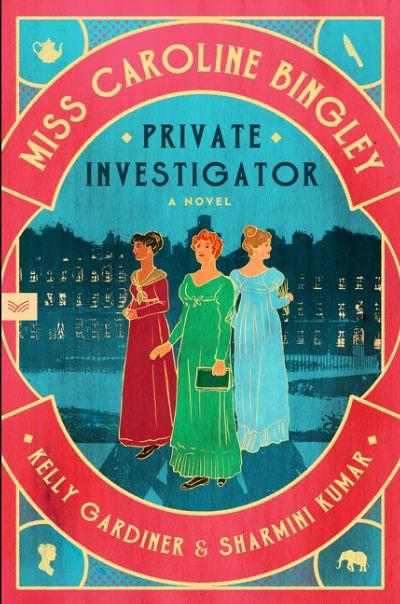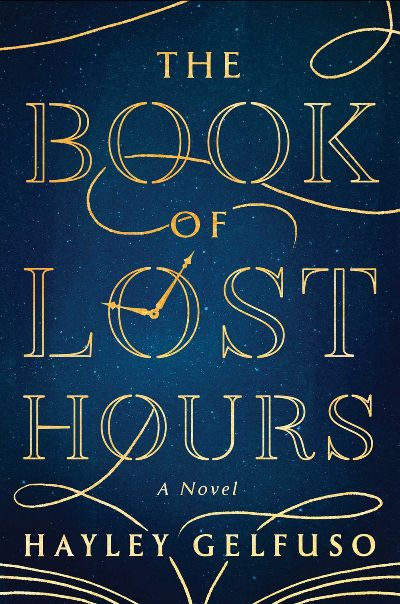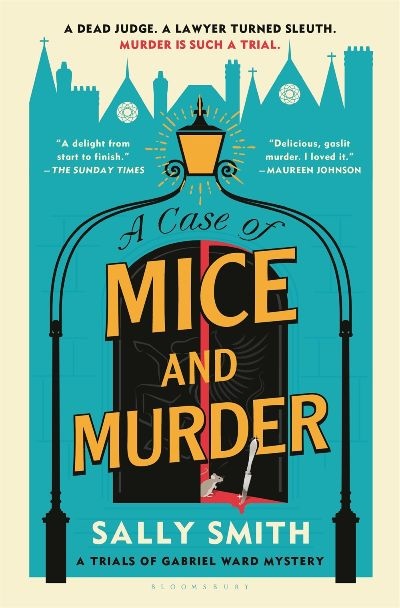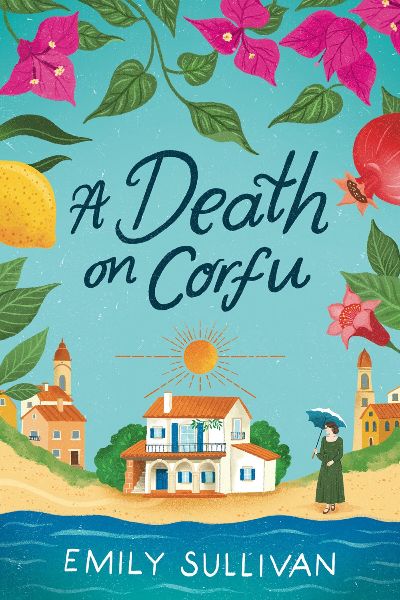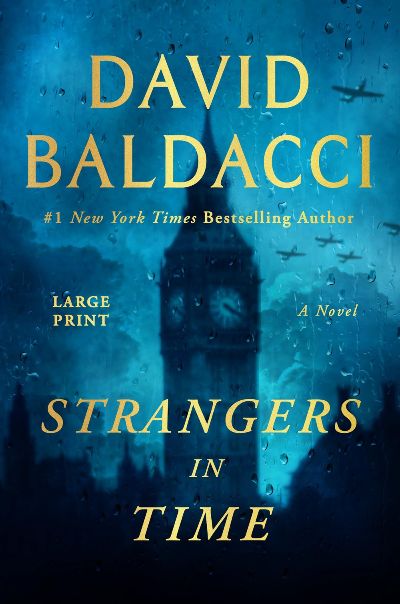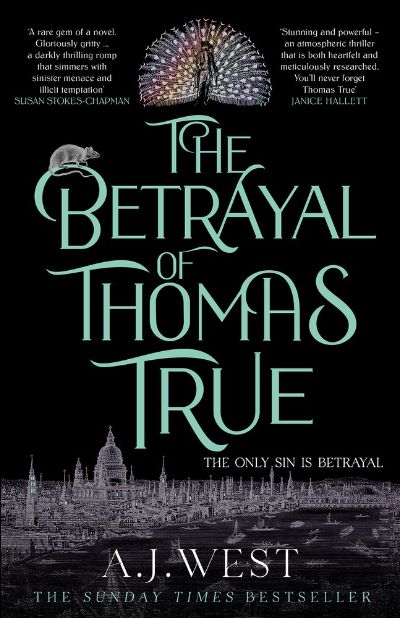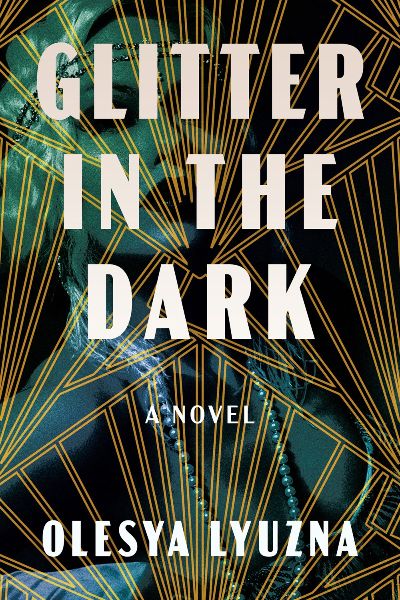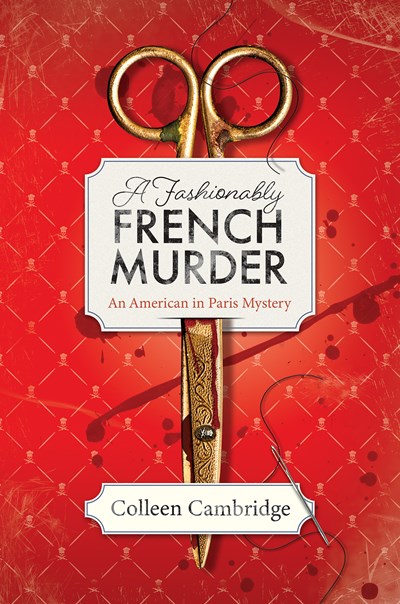December 16, 2025 will mark the 250th anniversary of Jane Austen’s birth, and what better way to celebrate than with this delightful reimagining of Elizabeth Bennet’s antagonist from Pride and Prejudice. Two years after the events of that novel, in which the snobby and haughty Miss Caroline Bingley lost the battle for Mr. Darcy’s affections, she is “marooned” at her brother Charles’s estate in wintry Derbyshire, bored with weeks of country dances, unchanging society, and dull conversations. Despite her complicated relationship with the Darcys, Caroline has grown fond of Mr. Darcy’s younger sister, Georgiana. When Georgiana’s Indian maid, Jayani, disappears from Pemberley and Georgiana heads up to London alone in pursuit, Caroline, accompanied by her loyal manservant, Gordon, tracks both fugitives and stumbles upon a brutal murder that implicates Jayani. Drawing on her keen intelligence, her bold self-confidence, and her large income, our Miss Bingley plunges into a gritty underworld of poverty, cruelty, and exploitation far from London’s glittering Ton. As she seeks to clear Jayani’s name, she also discovers the brutal colonialism practiced by the East India Company. Australian authors Gardiner (1917) and Kumar (who produces Melbourne’s Austencon) transform Austen’s mean girl into a more sympathetic protagonist while preserving her quick wit, sharp tongue, and independent spirit. Janeites will eagerly await Miss Bingley’s next adventure in sleuthing.
Historical
A reader may justifiably expect this book to be set in the American west, but this work, a two-novel combination, begins with the French neoclassical painter Jacques-Louis David and and the French Revolution. The modern-day mystery is set in Yellowstone National Park, where seasonal ranger and retired Fort Worth cop Clarence Johnson discovers a corpse as an unplanned part of his tour of park history. It connects him with Park Service Police Investigator Allison Nance and DEA Agent LaFleur, and after some struggle to get his creds recognized, Johnson joins the investigation. LaFleur is convinced that this death is drug related and does everything to make the evidence fit his theory. Johnson is pretty sure it is not and works to persuade Nance to be open minded. Nance’s specialty is art history; the painter Thomas Moran is said to have much to do with Yellowstone being the first National Park, and art as evidence crops up often in this case. Chapters alternate between the past and the present, with an artifact of French royalty at the center of intrigue in both time frames. While it is somewhat unusual to have so much time spent in the past, it is necessary here to set the stage. The interpretation of the artistic clues is a bit stretched, but essential to the conclusion. This could be an interesting series, and I hope to see further adventures of Nance and Johnson, along with Tripod, his three-legged rescue dog.
In 1938, to hide her from the Nazis, a German watchmaker places his 11-year-old daughter in a library balanced between space and time, where the books on the shelves are memories, and promises to return. Lisavet grows up in this world between worlds, and as she grows, she becomes the leader of a movement to stop some of the timekeepers who browse the shelves from burning pages out of the books. In Boston in 1965, a young woman named Amelia is approached by the director of a highly secretive CIA program. Amelia has a watch that can access the library, and the director, Moira, wants her to find a particular book of memories. With no choice, Amelia begins her search, not realizing that success will destroy everything she loves. The story is elegantly poetic, with hints of romance and science fiction mixed with the thriller elements. The time references and how everything operates can be complicated, but it doesn’t matter because the characters and the writing carry the reader on a fantastic journey. What are memories? Can love transcend time? This tremendous debut from Gelfuso reminds us that we write in the book of memories every day of our lives.
Attention anglophiles, lovers of dazzling historical fiction, and fans of a good draught of droll humor. This book is for you. Set in the Inner Temple, the heart of legal London for centuries, with its own degree of independence (not unlike the Vatican), the novel features Gabriel Ward KC, a brilliant legal mind who moves each day at the same measured pace between his chambers, which are crammed with books on nearly all topics; his office; and the dining hall. But on May 21, 1901, he emerges from his room only to discover a body on his doorstep. In fact, Ward is quick to identify it as the corpse of the Lord Chief Justice, who now has a Temple carving knife in his chest. But what is even more shocking isn’t that he is clad in evening wear, but that his feet are bare. How delicious is this plot? Appointed by the Temple’s Treasurer to investigate the murderer, Ward is paired with the eager and charming young Constable Wright, whose street knowledge turns out to be quite an asset, gaining Ward’s respect. The investigation drags the pair from the upper classes to the homeless, with an entirely separate court case—in children’s publishing, no less—providing some entertainment of its own. Quite simply, this is one of the very best debuts I’ve read in a long time; it’s sure to delight the Osman and Thorogood crews and readers of Sarah Caldwell’s legal murder mysteries as well.
In this police procedural with a huge twist, Ali Dawson works for a London police department that purports to solve cold cases. These cases are so cold they’re truly frozen, hence the department’s nickname and the book’s title. But the team’s real purpose is to send detectives back in time to solve crimes. An Italian scientist is behind the technicalities of it all, and the officers themselves have only a vague idea of how it works, but no matter. They’ve now visited the past several times, at first leaving the COVID era to go back to just before the pandemic, and then visiting past decades. But now a government minister wants to prove his ancestor innocent of a crime, a job that will send Ali back to Victorian London. Visiting Ali’s own city, but a vastly different version of it, is as fascinating for readers as it is for the sleuth, but all goes awry when she can’t get back, and her son—their relationship is a highlight of the book—is accused of murder in the present day. Griffiths provides just enough of the intricacies of time travel to keep things interesting without bogging the narrative down with physics, creating a fresh new series that will leave readers wanting more
The island of Corfu at the turn of the 20th century, with its native Greek population, large British expat community, and tensions therein, provides an excellent background for crime fiction. When her husband died unexpectedly several years ago, Minnie Harper was left with two children to raise on a modest income, with a deathbed promise to her husband that the family would remain in Corfu. Well-educated Minnie isn’t in the position to turn down a side gig, so when she is asked by her neighbor Stephen Dorian—a well-known, and handsome, mystery author—to type the manuscript of his latest book, she can only say yes. Despite her loathing of the man. But just as the two seem to settle into a disagreeable routine, Minnie discovers that one of the island’s young Greek women, who works as a maid, has been murdered. And the British community is doing its very best to ignore the murder, if not actually suppress it, while the local Greeks, for different reasons, are keeping their lips sealed. But Minnie isn’t about to let justice go undone, and with the help of Stephen, she heads off where no British woman has gone before her. Fans of The Durrells in Corfu, a hugely popular Masterpiece Theater drama set in the ‘30s, will appreciate this prequel of sorts, as will fans of cozy historical mysteries by Rhys Bowen, Jacqueline Winspear, and Amanda Flower.
The horrors of war are reflected in the lives of three people in Baldacci’s (A Calamity of Souls) latest. Fourteen-year-old Charlie Matters lives with his grandmother in cramped conditions. She thinks Charlie is spending his weekdays in school, but he has quit and spends the day roaming the streets, stealing food and money to survive. His goal is to eventually enlist and fight the Germans for taking away his parents and his sense of safety. When he steals from Ignatius Oliver’s bookshop, rather than demanding punishment for Charlie, Ignatius treats him well, almost like a father would. Like Charlie, Ignatius is dealing with loss, but it’s his wife instead of his parents. When 15-year-old Molly Wakefield returns to London after spending time away from the big city and conflict, she is horrified to learn her parents did not survive the bombing. The three bond, throughout the war trusting and protecting one another from a relentless enemy and secrets they can’t see coming. Baldacci chronicles the story of this makeshift family brought together by circumstances out of their control and how they can survive and confront whatever awaits. The author does a terrific job of transporting the reader back in time to a tumultuous period of living in London, and readers will practically smell the smoke and feel surrounded by rubble from the shattered buildings. Another great tale from a grandmaster storyteller.
It is 1715, and young Thomas True has managed to escape from his parent’s home, arriving in London, where he takes up residence with his uncle, a candlemaker to whom he becomes apprenticed. But that’s hardly the story. Eighteenth-century London was home to a flourishing, if risky, gay subculture, a world that seduces Thomas and that was centered around the molly houses. “Molly was a slur used for effeminate, homosexual men and the term was adopted to describe the clubs, taverns…where they met up in secret”, according to The British Newspaper Archives. And although the houses were called mollies, they attracted a range of men, from workers to aristocrats. It was a world where Thomas felt a sense of belonging, made all the more immediate with his discovery of beefy carpenter Gabriel Griffin (AKA Lotty), the doorman at Mother Clap’s Molly House. But when a young molly is found murdered, Gabriel goes in search of the rat who is exposing the men to the judicial system. Could it be someone he is close to? This book is that rare thing: both a strong historical novel that drops you into a richly rendered early 18th century and a powerful mystery that remains at the center of the book.
We are taken back to the roaring ’20s, to speakeasys and the Ziegfeld Follies, in this gritty noir with Ginny Dugan as our main character and sleuth. She and her dancer sister have come to New York from Kansas. Dottie, the sister, dances for the Follies, and is engaged to Charlie, a financial guy from home; Ginny writes an advice column for Photoplay, though keeps angling for real, hard-nosed reporting. Ginny is out partying at a speakeasy when she’s a witness to the kidnapping of Josephine, a headliner who is Black, but her story is not believed. People are dying of heart attacks in Harlem dance clubs, and dancers are reporting ghosts in the dressing rooms of the Follies, young women who have been murdered. There are drug stashes and secret crime bosses. Ginny partners with Jack, a detective, but it is Gloria, a Follies star, who calls to her heart. The level and complexity of the crime speaks to a mastermind: the Eagle, whose identity is unknown until the end. This debut turns back the clock with authentic detail and sharply drawn characters and a strong sense of violence and lawlessness. A challenging book.
Expat Tabitha King—formerly of suburban Detroit—is living, as the kids would say, her best life. She’s upped and moved to post-war Paris—she’s bilingual thanks to her mother and French grandmother—and this third, and best, in the mesmerizing “American in Paris” series finds Tabitha hanging out with her chum Julia Child, from whom she picks up some much-needed cooking tips. She’s also settling disputes between her Grand-père and his partner, Oncle Rafe (they are reopening a restaurant, thus the agida) and dipping her toe in the heady world of haute couture, with Christian Dior, who makes a cameo appearance, leading the way with his “New Look.” But when Tabitha discovers a body in one of the exclusive fashion ateliers, all the frothy fun comes to a halt, or at least a sputter, as Tabitha, with the sometime help of the all-too-handsome Inspecteur Merveille, throws herself into the search for the murderer. It’s a search that takes Tabitha back to Paris during the Occupation and the work of the Resistance against the Nazis and the French Vichy government, as well as those whose role was less clearly defined. Rich in history, full of the value of friendship and family, and with a very, very slow-growing romance (we want more, Colleen!) this is certain to be one of the best mysteries of 2025.

